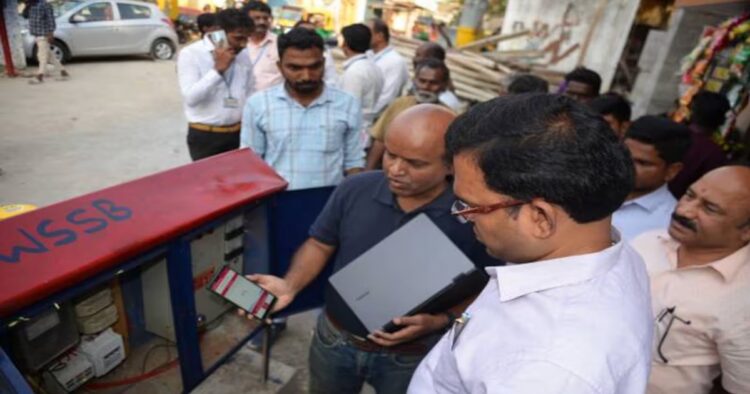In a bid to address the pressing issue of water scarcity in Bengaluru, the Bangalore Water Supply and Sewerage Board (BWSSB) has unveiled a groundbreaking initiative incorporating Artificial Intelligence (AI) and Internet of Things (IoT) technologies. This move aims to revolutionize the management of borewells, crucial sources of water in the city.
The demonstration, which took place at a borewell situated in Benson Town, Central Bengaluru, showcased the practical application of AI and IoT in monitoring water flow patterns. With nearly half of the city’s public borewells already drying up this summer, amounting to around 6,900 out of 14,000, the need for innovative solutions has become paramount.
V Ram Prasath Manohar, Chairman of BWSSB, explained that IoT sensors installed in the borewells will analyze data on flow patterns, sending crucial information to the cloud for assessment. This data will enable the system to regulate motor operations effectively, ensuring optimal usage of available water resources. Automatic signals will trigger shutdowns when water levels decrease, reducing the need for manual intervention and minimizing the risk of overexploitation.
The implementation of AI and IoT technologies marks a significant shift towards data-driven management practices in the realm of water resource management. Manohar emphasized the importance of this approach, stating that the current methods of assessing borewell water levels often rely on guesswork, leading to inefficient usage and potential damage to borewell infrastructure.
One of the critical challenges addressed by this initiative is the risk of unscientific borewell exploitation, which can lead to irreversible damage to the underground water sources. Manohar highlighted the dangers of excessive extraction, including the possibility of drawing soil into the borewells, resulting in blockages and further exacerbating the water scarcity issue.
The BWSSB plans to roll out this technology across all 14,000 public borewells in Bengaluru, with an initial focus on the 7,000 active ones. Successful piloting of the technology in five borewells has paved the way for its wider implementation, offering hope for more sustainable and efficient management of water resources in the city.
With the implementation of AI and IoT technologies, BWSSB aims to address the challenges of water scarcity while ensuring the long-term sustainability of borewell usage. By leveraging data-driven insights and automation, the initiative represents a significant step forward in the quest for efficient water management in urban areas.

















Comments